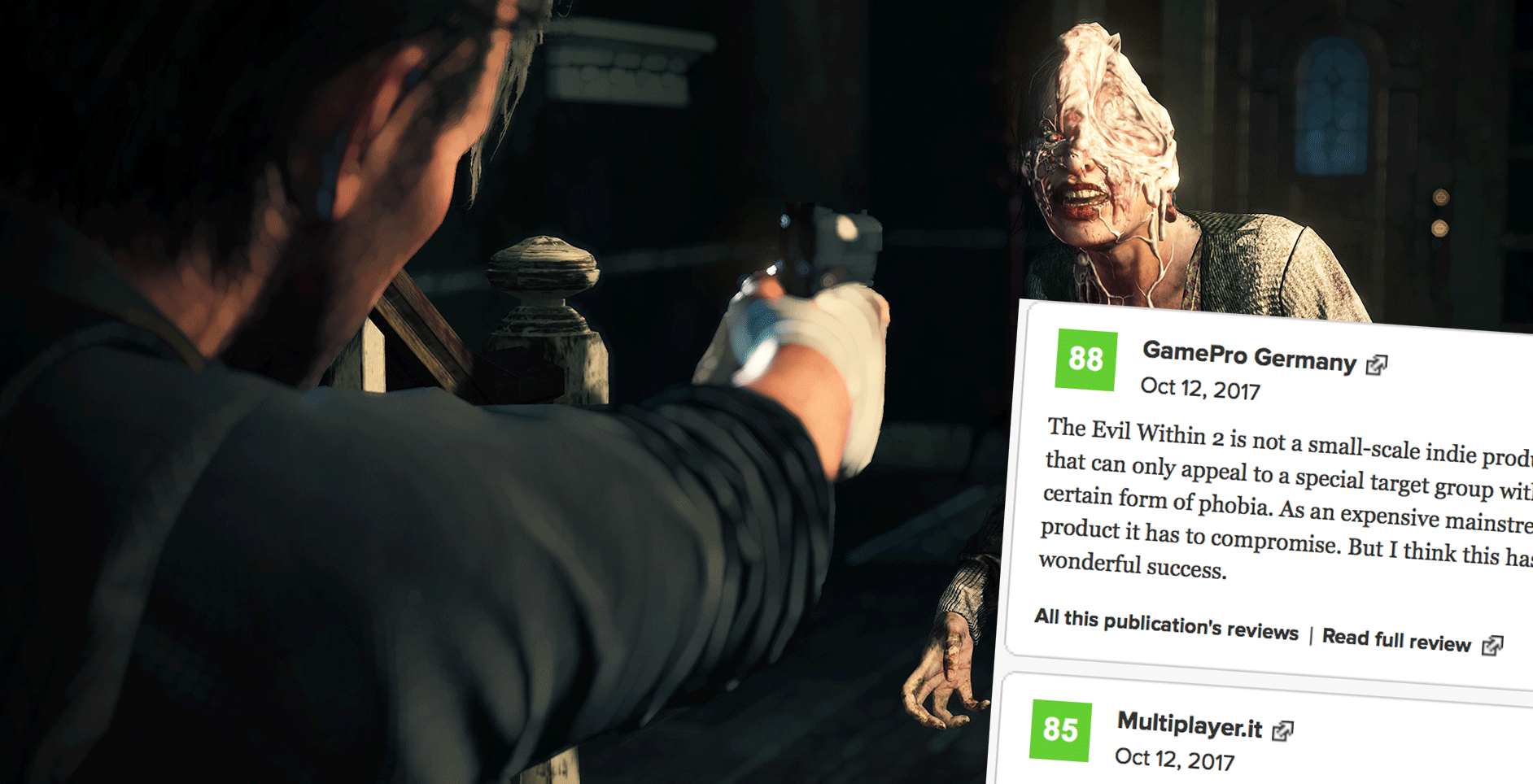The Evil Within 2 released worldwide today. The game had a much smaller window from announcement to release than most games, only giving media the opportunity to really go hands on with it once before release, so it wasn’t clear what to expect from the final product. Whilst our review is probably still a day or two away (we only got the game yesterday morning), we’ve rounded up some reviews from the internet.
So far, the game is tracking ahead of the original on Metacritic with a score of 80 compared to 75 for the original. It’s worth noting that the original released very early in the generation when there wasn’t as much competition.
However, reviews definitely suggest that The Evil Within 2 is better in almost every way.
Windows Central said in their review: The Evil Within 2 is a frightening game, though perhaps not as pants-wettingly scary as the early portions of Resident Evil 7. The game itself is improved nicely over the original, with a great open-world structure and lots of interesting missions to take on. If you’re looking for a lengthy and frightening adventure this Halloween season, look no farther than The Evil Within 2.
Game Revolution said in their review: In the end, The Evil Within 2 is a worthy sequel that makes a number of bold decisions. For those solely looking for the survival horror thrills of the first game, its spotlight upon combat will likely be a disappointment, as will its introduction of a dull open world. However, there’s plenty tucked away in The Evil Within 2 that will both appeal to both fans of the original and new players, with it presenting a mix of Mikami’s best ideas and John Johanas’ new direction. It’s certainly not what I was expecting, but in a good way.
IGN Italy said in their review: The Evil Within 2 is definitely one step ahead of its predecessor: a rich, deep and long-lived horror survival. The level of difficulty has been considerably softened, and if this makes the title more affordable, on the other, it denies that authoritative uniqueness of the title that inspired it.



